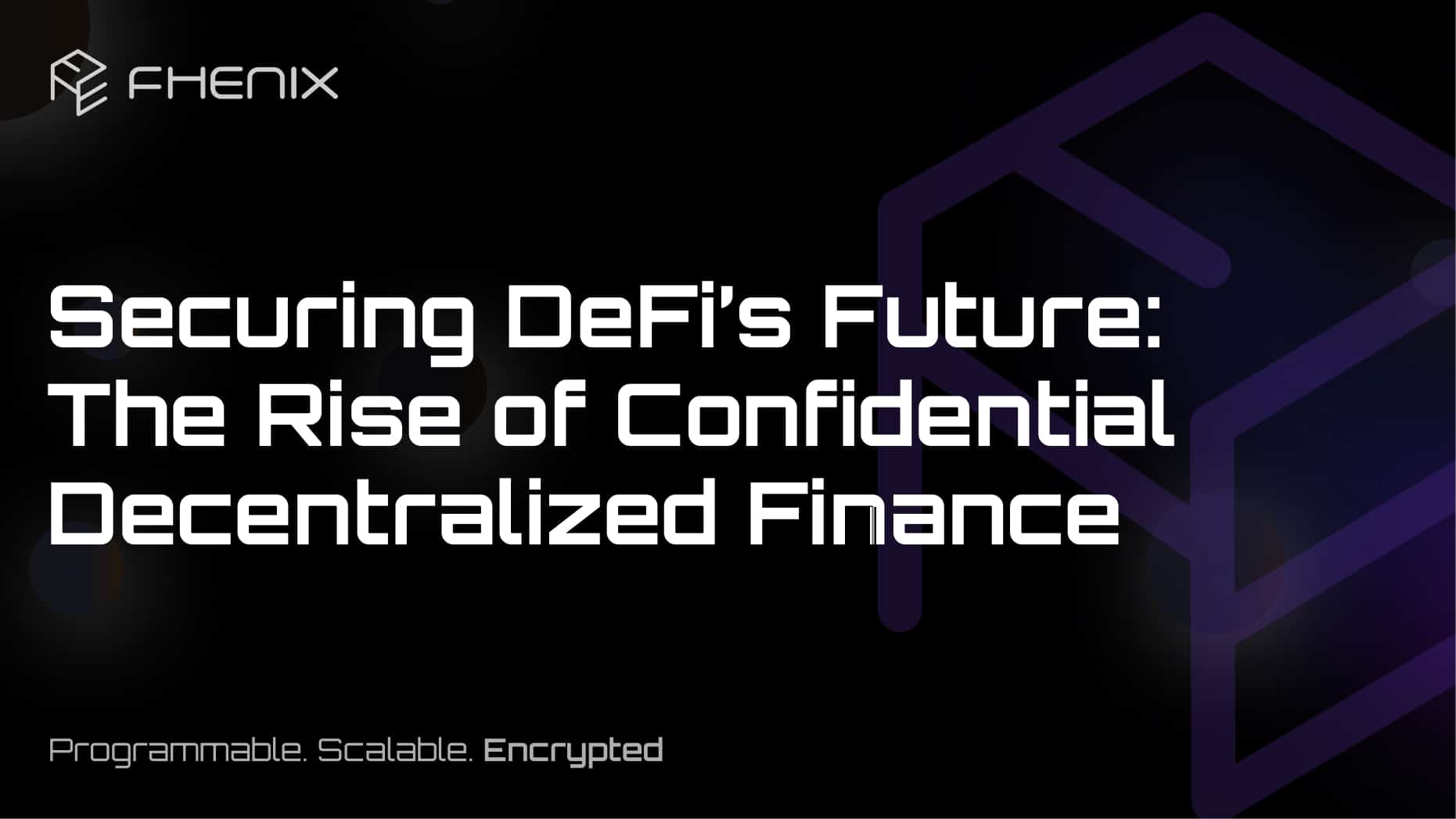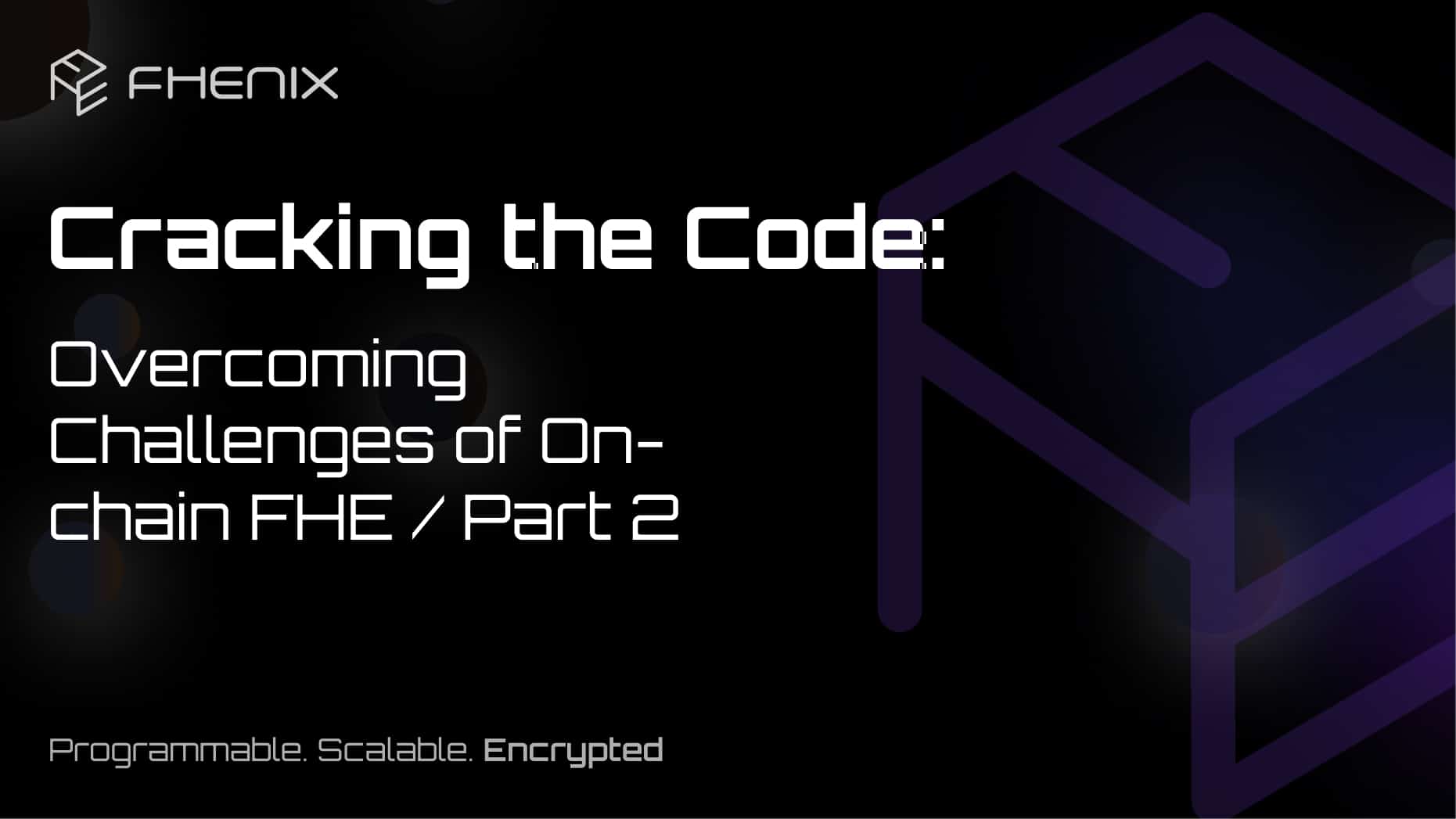
Date: 25-02-24
Securing DeFi's Future: The Rise of Confidential Decentralized Finance
Introduction:
Decentralized Finance (DeFi) is growing rapidly and bringing trading, borrowing & lending, derivatives, and more on-chain.
And yet, the public nature of blockchain is a significant limitation for many DeFi use cases.
In this article we’ll cover:
- Challenges with a transparent DeFi ecosystem
- How Fully Homomorphic Encryption (FHE) can be used to bring encryption to the blockchain, and the associated benefits.
- Recent cryptographic developments that have helped bring FHE to DeFi
Challenges with Public DeFi:
Many areas of DeFi hold tremendous promise, including asset tokenization, derivatives, and payments. Tokenization alone represents a $16T opportunity, and institutions are realizing that DeFi isn’t going away.
That being said, the industry is early and there are inherent issues in having a fully transparent financial system. These include:
- Privacy concerns: Many transactions may entail sensitive data, such as institutional payments, or anything relating to personal data. This will become an event greater concern as analytical tools develop, simplifying the task of tracking one’s wallets and potentially making it easier to correlate one’s wallet to their identity.
- MEV extraction: Front-running and other forms of MEV extraction are common in DeFi, creating a hidden tax on transactions.
- Regulatory challenges: DeFi is facing increasing regulatory scrutiny, likely to only accelerate.
Fully Homomorphic Encryption (FHE) enables computations to be done on encrypted data, which was never before possible. This means that on-chain data can be encrypted while still updating the network’s shared state transaction-by-transaction.
From a privacy perspective, encryption keeps all data confidential and auditable, which coincidentally is critical for complying with data protection and privacy laws. It also means that block proposers cannot view transaction data, therefore prioritizing based on network rules rather than personal gain and preventing MEV.
Next, let’s take a look at technological advancements and considerations.
FHE in DeFi: Technical Considerations:
A challenge with FHE in DeFi is that computations must be exact, which requires the use of a specific type of scheme. A scheme refers to a standardized and systematic approach that helps developers manage data or code to efficiently solve problems.
The best DeFi-specific FHE schemes are known as BGV or BFV, which we covered in our blog post titled FHE Challenges: Part 1. While other schemes may also be used, BGV and BFV are considered the most efficient as they batch multiple computations together. These schemes are still being developed alongside FHE libraries and compilers, which in combination will radically improve the development experience.
Meanwhile, the fact that the tech is so cutting-edge means that it’s quite challenging to do computations on ciphertext (encrypted data). For example, in the past only the denominator in a division was able to be ciphertext. Recent advancements have made it possible to divide a ciphertext by another ciphertext, opening up the potential for more types of confidential DeFi transactions. AMM calculations are a use case, as encrypted calculations on DEXs (like Uniswap) require the ability to divide ciphertexts, which wasn’t formerly possible.
In the future, it’s likely that FHE tooling will improve further and open up the potential for more types of transactions, while the actual computing process also becomes significantly more efficient.
Conclusion:
Fully Homomorphic Encryption (FHE) emerges as a transformative solution to concerns regarding DeFi’s public nature. As the DeFi landscape expands, the need for confidentiality, security, and regulatory compliance becomes increasingly pronounced. FHE encrypts individual transactions and state transitions, safeguarding sensitive data while allowing for auditability when necessary.
Recent cryptographic advancements, including efficient FHE schemes like BGV and BFV, alongside breakthroughs enabling computations on ciphertexts, signal significant progress. These developments hold promise for broader adoption of FHE in DeFi applications, enhancing privacy and security across the ecosystem.
To learn more, visit Fhenix.io


